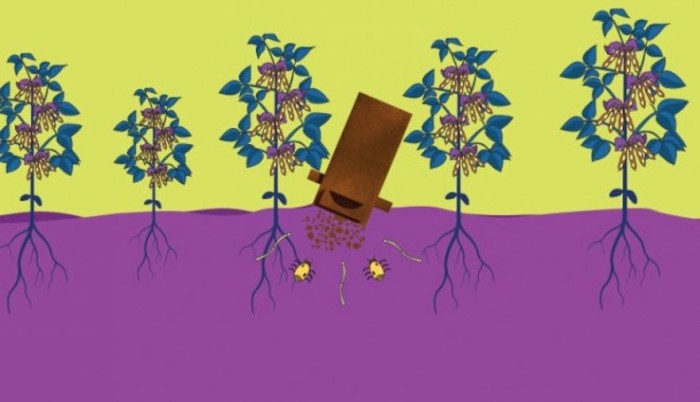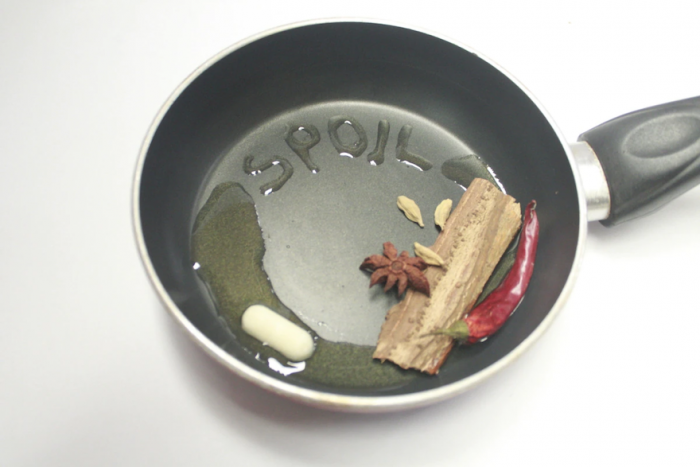India uses around 25 million tons of edible oils a year, for everything from cooking to cultural and beauty practices. This creates a high environmental impact, which was of concern to four students studying at The Design Village (TDV), an inter-disciplinary industry-centric institute based in Noida, New Delhi in India.
The students – Tanish Agrawal, Arshad Bajil Kuttasseri, Kunika Sharma and Natasha Singh – decided to find a more sustainable way to use, conserve and package this liquid gold. The challenge was to use design and biotech with socially conscious ends in mind.
When oil contains a high percentage of saturated fatty acids, it can take on solid form – for example, during the winter, coconut oil solidifies. The students designed a process to increase the percentage of stearin, which is used in the baking industry as an alternative to cocoa butter. By experimenting with stearin, the students were able to mould the oil into pellets to create a product they call SPOIL.
The name SPOIL (Sustainable Packaging for Oil) was chosen as a nod to India's view that adding excess oil, like ghee, in food preparation is seen as a way of demonstrating love, particularly towards children.
Two SPOIL oil pellets equate to one teaspoon of oil, so using the ingredient is easy to measure, reduces wastage, and promotes a healthy control of the consumption of edible oils. The pellets contain the correct balance of saturated and unsaturated fats for a healthy human diet.
The designers used waste materials leftover from the oil extraction process to create a biomaterial for food packaging. The oil cake is rich in antioxidants, proteins, and other useful substances. This keeps the capsule fresh, preventing oxidation. The packaging dispenses two pellets at a time, which makes for consumer-conscious consumption. Once the product has been used, the biodegradable secondary packaging can be used to fertilise soil.
TDV scooped two prizes at the Biodesign Challenge Summit 2021 with their innovative design – the first-ever South Asian Institute to participate and win – outcompeting 51 teams from across the globe. They hope to collaborate with other researchers and designers to take their ideas to the next level.
Read more
Louis Vuitton unwraps first vegan sneakers.
No Waste Challenge winner, Packing Up PFAS creates clean bricks from polluted clay.
Credits: The Design Village








